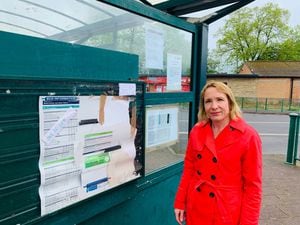Call to end 'spiral of decline’ of bus services by handing control to councils
Organisations are calling on the Government to give councils more power to control their bus services.

The Local Government Association (LGA) and the Urban Transport Group (UTG) have called for new powers for councils to decide the way local bus services are delivered, to end a “spiral of decline” of services by protecting vital bus routes and reinvesting in local networks.
A new report from the organisations warns that the task of patching and mending gaps in the network is more challenging than ever for local authorities.
Ahead of the start of party conference season, they are calling for a review of current legislation that would allow all cities, towns and rural areas in England to have the same rights to introduce bus franchising as those enjoyed by mayoral combined authorities.
Those rights include power over the fares that are charged and standards that should be met, the frequency of bus services provided and where and when they run, and the ability for buses to be part of joined-up transport networks to meet the needs of local communities.
Shropshire councillor Roy Aldcroft, Mayor of Market Drayton, said issues with public transport are at the forefront of many residents' minds.
He said: "There has already been a considerable amount of work that's gone into a scheme for rural villages, but we do need a change in the rules and the funding to modernise the service.
"I'm regularly asked what we're doing about transport, but unfortunately we're in a chicken and egg situation.
"Everyone has bought cars because there are no buses, so something has to be done to make it attractive."
Councillor Darren Rodwell, transport spokesperson for the LGA said: “Councils should be in the driving seat to deliver good, affordable and reliable bus services in their areas, not private bus operators, but are restricted from taking greater control over them.
“By providing councils with new franchising powers they would be able to keep fares down, increase the number of local bus routes and make buses more attractive for everyone to use.
“We know that buses are a lifeline to so many people,and councils want the powers and funding to ensure there are good services in every corner of the country, from the biggest city to the smallest village.”
The report by the LGA and UTG recommends lifting the ban in the Bus Services Act 2017 that prevents councils from establishing their own bus companies.
It highlights that in areas with municipally-owned bus companies, bus journeys per head of population are well above the English average.
The publication also calls for the Government to urgently review Enhanced Partnerships between bus operators and councils to see how they can be improved to meet the ambitions set out in the National Bus Strategy, including making services more frequent, reliable and easier to understand.
The LGA and the Urban Transport Group are also calling for greater, long-term investment in local bus services.





